Blind ball as a teambuilding exercise
Total concentration and sharpened communication. When sight goes out, hearing and voice become your strongest weapons. You're pushed to listen, sense and react quickly and trust each other completely. Where is the ball? - Who's taking it?
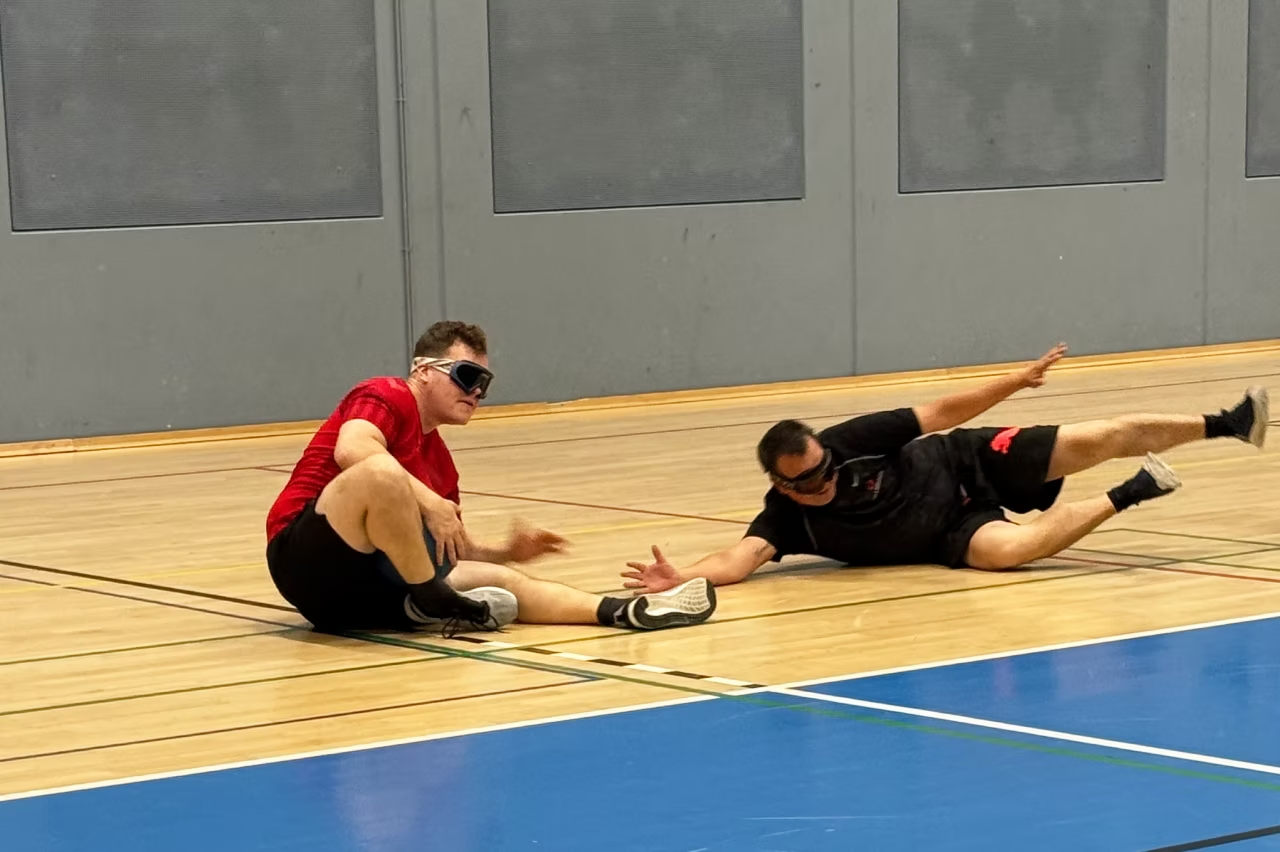
About
Goalball
Goalball is a team sport developed for the blind and visually impaired - and is an official event at the Paralympic Games.
Rules and content
- 1 Played by two teams with three players on the field at a time. Plus 1-2 sighted teammates on each team on the sidelines to direct players.
- 2 All players wear blackout glasses, so everyone is "equally blind".
- 3 The ball is equipped with internal bells so you can hear where it is.
- 4 The game is about throwing the ball into the opponent's goal and blocking the ball with your body when defending.
- 5 The court is the size of a volleyball court and bounded by borders
The essence of
Goalball
Goalball requires keen senses, deep concentration and complete trust in teammates.

Goalball
as a teambuilding exercise
Here you win when concentration is focused and trust is strong.
When sight is taken away, your ability to listen and communicate clearly is everything. In Goalball, voice is the compass and trust in your teammates is your safety net. No one can succeed alone - everyone relies on each other's clear signals and quick reactions.
Applied to teamwork, Goalball shows how clear communication, active listening and mutual trust create the foundation for achieving common goals. It's an exercise in letting go of control and discovering the power of leaning on each other.
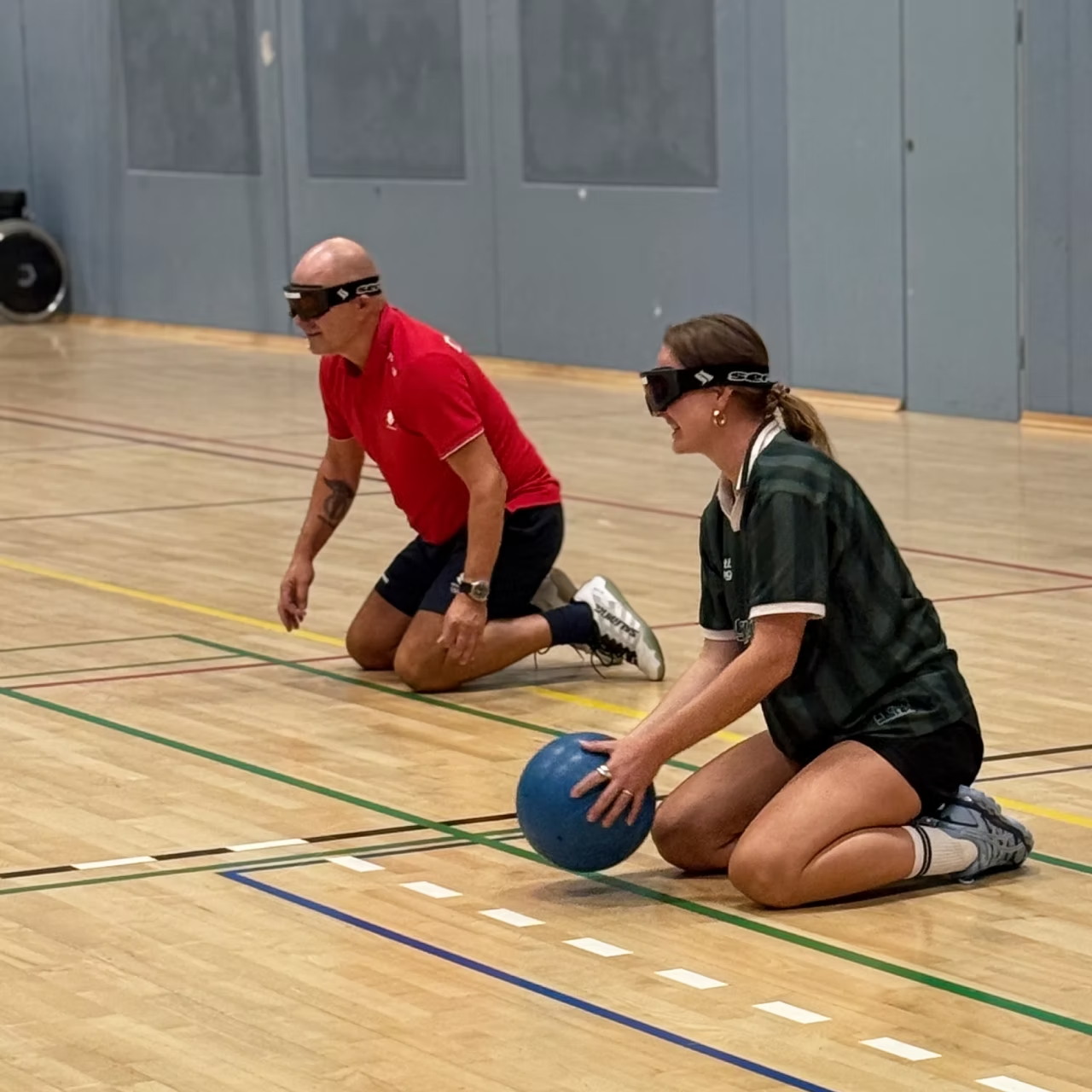


How can you use it in your everyday life?
When sight is taken out of the equation, clear communication and trust become essential. Goalball trains the ability to listen, give clear messages and collaborate effectively - without a visual overview. It's a powerful exercise that mirrors many of the challenges teams face on a daily basis, where not everyone has the same information but still needs to reach a common goal.
Communication
Without eye contact or body language, every word must carry meaning. It sharpens your ability to articulate clearly and listen actively - just like in a team, where misunderstandings cost speed and results.
Imagine you're standing on the pitch with blackout glasses on and you hear the ball rolling. If you shout at each other or give unclear messages, the ball will reach your opponent in a split second. But if one person gives a clear command - "left!", "I got it!" - and the others react quickly, your teamwork will be sharp and you'll reach the goal together.
- It's about expressing yourself clearly and precisely, even when the usual cues (eye contact, body language) are missing.
- To listen actively and respond quickly to input.
- Creating a common language that EVERYONE can navigate by.
Sharpen the ability to avoid misunderstandings, increase collaboration accuracy and make teams more effective in complex situations.
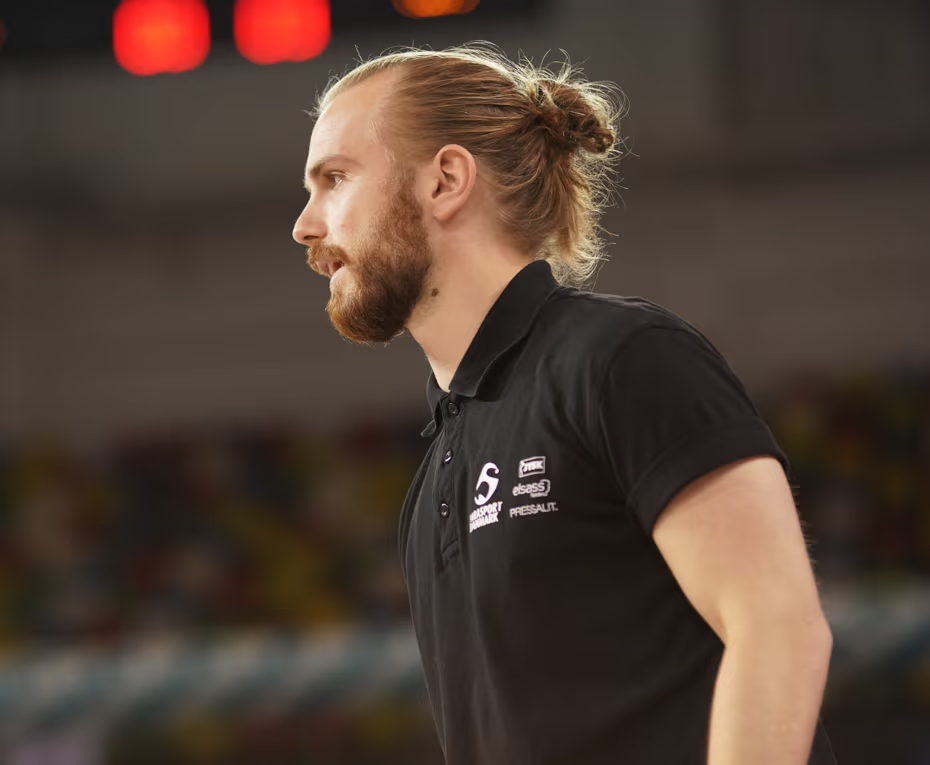
Trust & Confidence
When you're playing blind, you need to be able to rely on the team to cover you and react correctly. It shows how crucial it is to have the courage to let go of control and trust others to do their part.
When sight is gone, you have to rely on others. Imagine you dive down to block the ball - without knowing exactly where it is. You do this because you trust that your teammates have given you the right information.
- To dare to let go of control and trust others 'blindly'.
- Accepting that you are dependent on each other's efforts.
- To strengthen mutual respect and trust in the team.
Trust gives you the courage to act, share responsibility, and it strengthens unity so that results are created faster and more consistently.
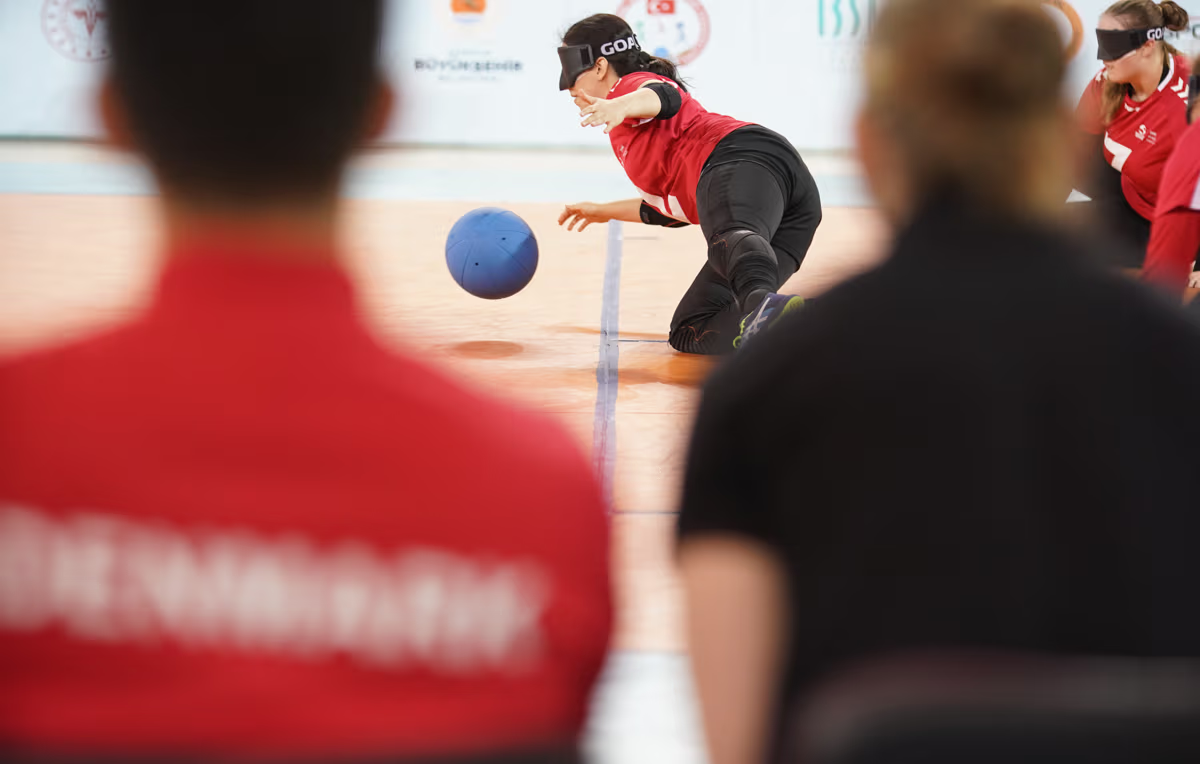
Get a quote for team building
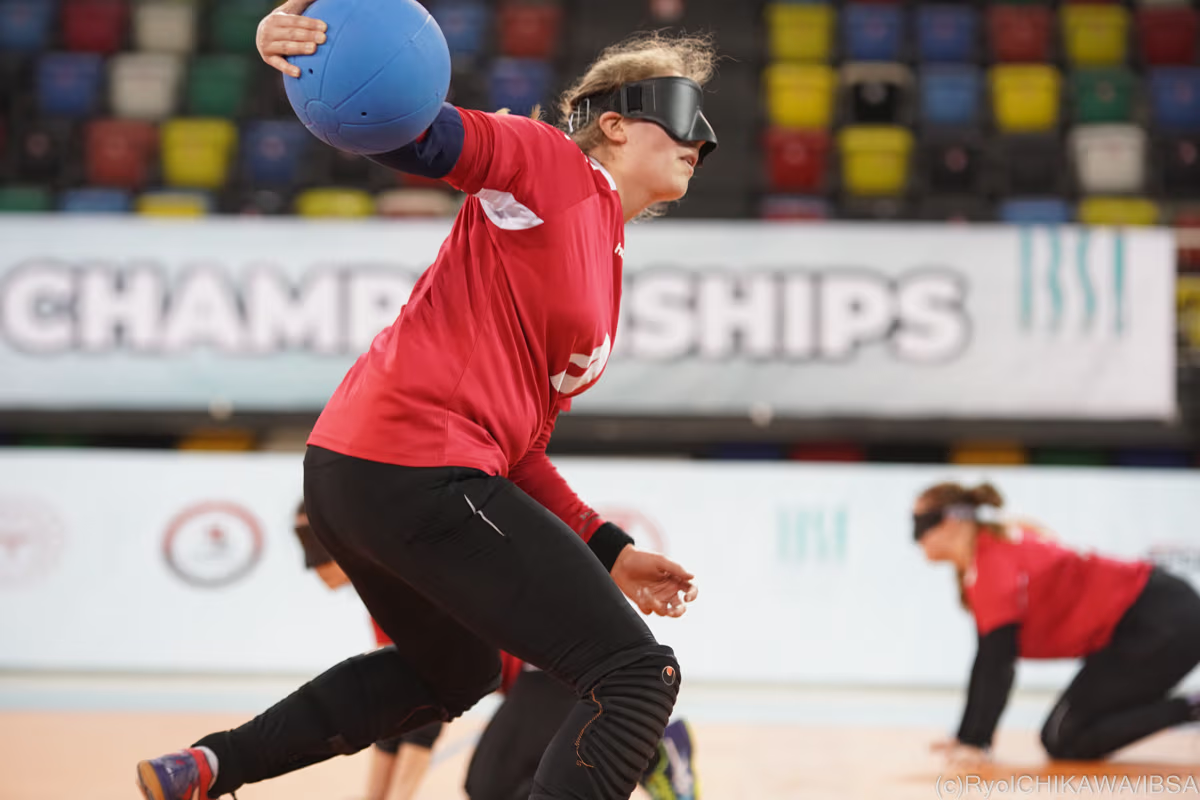
FAQs
Welcome to our FAQ section, where we answer the most common questions and give you the information you need.